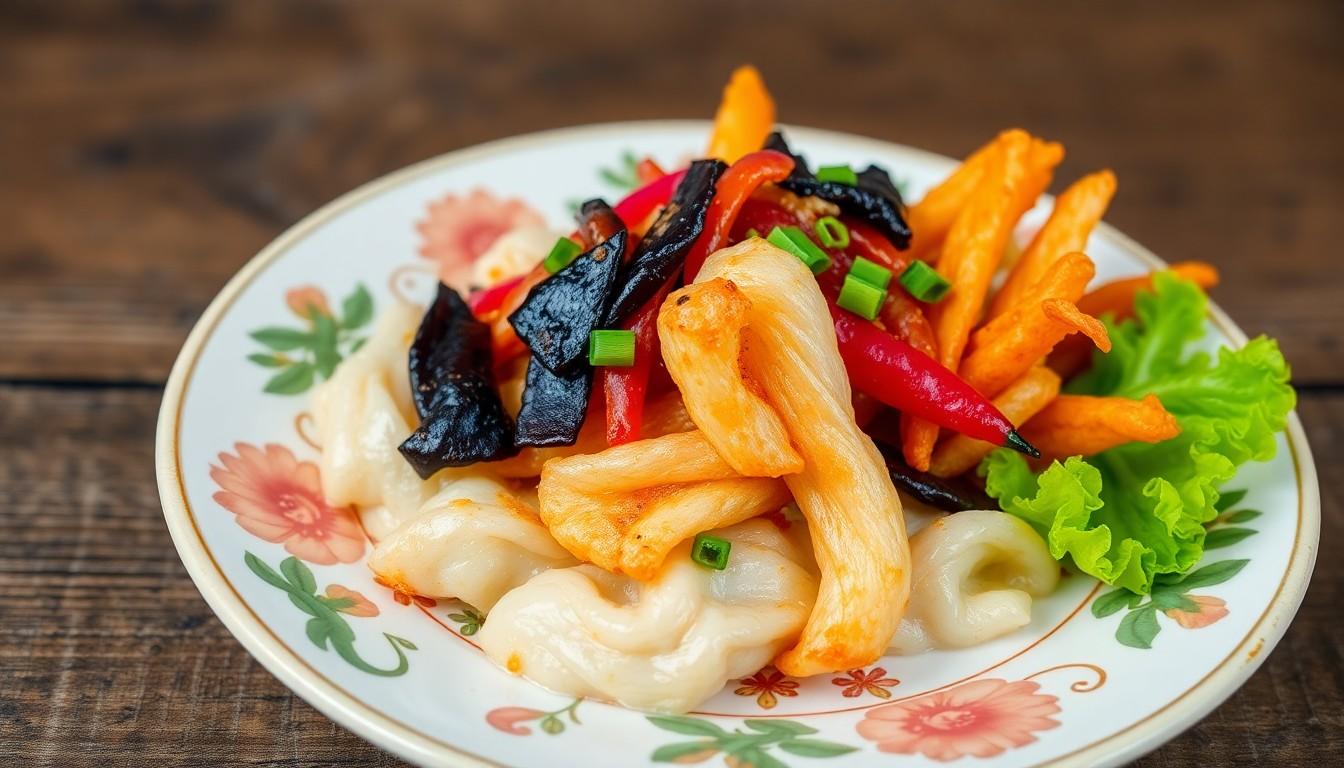Renkooki, the delightful treat that’s captured the hearts of snack lovers everywhere, is a crunchy sensation that’s hard to resist. But before diving into this tasty indulgence, it’s essential to know just how many calories are hiding in those irresistible bites. After all, knowledge is power, especially when it comes to snacking!
How Many Calories in Renkooki
Renkooki is a widely appreciated crunchy snack known for its delightful texture and flavor. Made primarily from rice flour, this snack gets a tasty enhancement from seasonings or flavorings. Each serving typically contains about 100-150 calories, but the exact count depends on the specific ingredients and preparation methods.
Ingredients play a significant role in calorie variation. Some Renkooki types might incorporate additional ingredients like oils or spices, which can increase calorie content. Understanding these variations is crucial for those tracking their intake.
Renkooki appeals to a diverse audience, often enjoyed by individuals seeking a satisfying crunch during snack time. Its popularity stems from the unique flavor combinations and the satisfying crunch that accompanies each bite.
Portion size also influences overall calorie consumption. For mindful snacking, keeping an eye on serving sizes can help balance enjoyment with nutritional awareness.
Similarly, individuals with specific dietary goals often consider Renkooki a suitable option due to its relatively low calorie count compared to conventional snacks. Finding the right variety of Renkooki to match personal preferences can lead to a more enjoyable snacking experience.
Knowing the calorie content and factors affecting it supports informed choices while enjoying Renkooki.
Nutritional Information of Renkooki

Understanding the nutritional profile of Renkooki helps snack enthusiasts make informed choices. Renkooki contains essential macronutrients that contribute to its overall energy content.
Breakdown of Macronutrients
Renkooki typically provides a balanced mix of macronutrients. Carbohydrates account for approximately 70-80% of its total caloric content, primarily derived from rice flour. Proteins offer about 6-8 grams per serving, supplying necessary amino acids. Healthy fats make up less than 10% of the total calories, which are often influenced by additional ingredients like oils or seasonings. Portions play a crucial role, with serving sizes affecting overall macronutrient intake.
Vitamins and Minerals Content
Renkooki also contains a variety of vitamins and minerals. B vitamins are prevalent, supporting energy metabolism, found in small quantities. It may deliver small doses of iron and magnesium, essential for various bodily functions. The exact vitamin and mineral content varies depending on the flavorings used. Individuals focusing on specific dietary needs should check ingredient labels for nutrient variations. With such nutritional diversity, Renkooki can complement a balanced diet.
Caloric Content of Renkooki
Renkooki provides a satisfying snack experience with a moderate caloric count. Often, a serving contains between 100 to 150 calories.
How Many Calories Are in Renkooki?
Calories in Renkooki vary based on preparation and ingredients. Each serving typically contains 100 to 150 calories. Rice flour serves as the primary ingredient, contributing significantly to the overall caloric content. Additional flavorings and oils can increase this number. It’s essential for individuals monitoring their intake to check specific product labels for accurate information.
Comparison with Other Foods
Renkooki compares favorably with many conventional snack options regarding calories. Traditional potato chips often contain around 150 to 200 calories per serving. In contrast, Renkooki’s lower calorie range makes it a more suitable choice for mindful snacking. Other rice-based snacks usually mirror this range but might offer higher calories when prepared with rich flavorings. Understanding these differences can guide consumers towards healthier choices when selecting snacks.
Health Benefits of Renkooki
Renkooki offers several health benefits that make it a compelling snack option. Nutritionally, it provides a relatively lower caloric intake compared to many traditional snack foods. Serving sizes typically range from 100 to 150 calories, allowing for guilt-free enjoyment in moderation.
Rich in carbohydrates, Renkooki derives 70-80% of its caloric content from rice flour, supplying quick energy. Protein amounts to about 6-8 grams per serving, contributing to muscle repair and overall satiety. Healthy fats, while minimal, represent less than 10% of total calories, ensuring a balanced macronutrient profile.
Various seasonings add flavor while potentially introducing essential vitamins and minerals. B vitamins support energy metabolism, while iron and magnesium can aid in muscle function and overall health. Each flavor variation may alter the nutritional benefits, emphasizing the importance of reviewing ingredient labels.
Renkooki’s crunchiness appeals to those seeking texture in snacks. This unique feature satisfies cravings without excessive calories, making it preferable over higher-calorie options like potato chips. The typical calorie count for chips hovers around 150 to 200 calories per serving, further underscoring Renkooki’s more health-conscious profile.
Portion control plays a significant role in responsible snacking. By being mindful of serving sizes, individuals can incorporate Renkooki into their diets easily. This crunchy alternative supports diverse dietary goals while providing enjoyment. Overall, Renkooki proves beneficial within a balanced eating plan.
Variations
Renkooki stands out as a delicious and lower-calorie snack option for those who love crunch. With its calorie content typically ranging from 100 to 150 calories per serving it’s a mindful choice compared to many traditional snacks. The unique flavors and satisfying texture make it appealing to a wide audience while still offering nutritional benefits.
Being aware of the calorie count and ingredient variations allows snack enthusiasts to enjoy Renkooki without compromising their dietary goals. Whether it’s a quick energy boost or a flavorful treat Renkooki can fit seamlessly into a balanced diet. Embracing this snack can lead to guilt-free enjoyment and a satisfying crunch that satisfies cravings.

